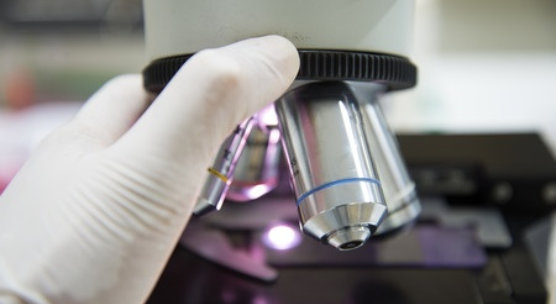University set to benefit from IOMet Pharma deal
Published On Thu 14 Jan 2016 by Roddy Isles

The University of Dundee is set to benefit after a specialist Scottish drug discovery firm it helped to grow was bought out in a multi-million pound £280 million deal.
Researchers at the University worked with Edinburgh-based IOmet Pharma to develop IDO and TDO inhibitors – rate-limiting enzymes that are key targets for the global pharmaceutical industry in the field of cancer immunotherapy.
The New Jersey-based global health care group Merck has announced it had acquired IOmet and its clinical pipeline through its MSD subsidiary.
As the deal went through, IOmet chief executive Dr Alan Wise paid tribute to the role played by Dundee in the company’s success.
“As a company we have benefited from proximity to world-class life sciences research including the University of Dundee, an early stage collaborator with us on the IDO1 and TDO programs, and from supportive shareholders including the Scottish Investment Bank,” Dr Wise said.
“We now look forward to joining Merck and feel that this acquisition underscores the shared commitment we have to accelerating our programs to bring solutions to people who need them most.”
Eric Rubin, the Merck Research Laboratories vice-president and therapeutic area head, oncology early-stage development, said IOmet’s portfolio included brought “promising immunotherapeutic candidates”.
“By harnessing the power of the immune system, we are already witnessing great advancements in the treatment of cancer,” Mr Rubin said.
The collaboration between Dundee and IOmet began in 2011 after researchers from the Drug Discovery Unit at the University’s School of Life Sciences received a knowledge-exchange grant from Scottish Funding Council to identify and progress projects for drug discovery. One of these projects was partnered with IOmet Pharma, a company specialising in new approaches to cancer therapy.
University of Dundee researchers made the tools to screen ‘libraries’ of many thousands of chemicals against selected ‘drug-targets’; the tiny sub-components of cancer cells that, if bound-up by a drug, should be beneficial. They also improved the chemical ‘hits’ from these screens by making new versions. This provided IOmet Pharma with a starting point to develop the project to a point where it became an attractive proposition to the US drug-giant Merck Sharp & Dhome.
Professor Paul Wyatt, who has led the Dundee component of the collaboration from the outset, said, “The research we performed was to find new ways of tackling cancer. The usual method to kill cancer cells is through conventional chemotherapy, but the problem is that this is not always effective and often means killing healthy cells as well as cancerous ones.
“IOmet Pharma have been trying to develop a more targeted therapy by approaching it from an immunological angle. Scientists have identified that cancer cells weaken our own immune responses to them through an inflammatory process.
“This stops the body clearing the cancer, however IOmet has developed a means of overcoming this. The hope is that the body will then be able to eliminate the cancer cells, hopefully sparing the patient from more aggressive chemotherapy.
“We are delighted that the project we helped to develop has enabled the team at IOMet Pharma to carry out the research that has now led to this significant investment, which we hope will eventually lead to a more successful way of treating cancer.”
Professor Sir Pete Downes, Principal and Vice-Chancellor of the University of Dundee, said, “Our purpose as an institution is to transform lives and one of the ways we do this is through world-class research. The acquisition by Merck of a company our researchers in the School of Life Sciences have collaborated closely with for years is a perfect example of this principle. Not only does this deal bring the development of innovative cancer therapies a step closer but it also delivers a significant economic boost to the University, the local area and Scotland as a whole.
“I am very proud of the fact that research undertaken at Dundee may one day bring hope to millions of cancer sufferers across the globe and this is a tremendous example of what can happen when industry and academia work together towards a common goal. With continuing support from Government and funding councils the University of Dundee, and the wider Life Sciences sector in Scotland, can continue to generate vital inward investment while working to enhance the health and wellbeing of people across the globe.”
The University’s work with IOmet was supported by the Scottish Funding Council.
For media enquiries contact:
Roddy Isles
Head of Corporate Communications
University of Dundee
Nethergate, Dundee, DD1 4HN
Tel: +44 (0)1382 384910
Mobile: 07800 581902
Email: r.isles@dundee.ac.uk